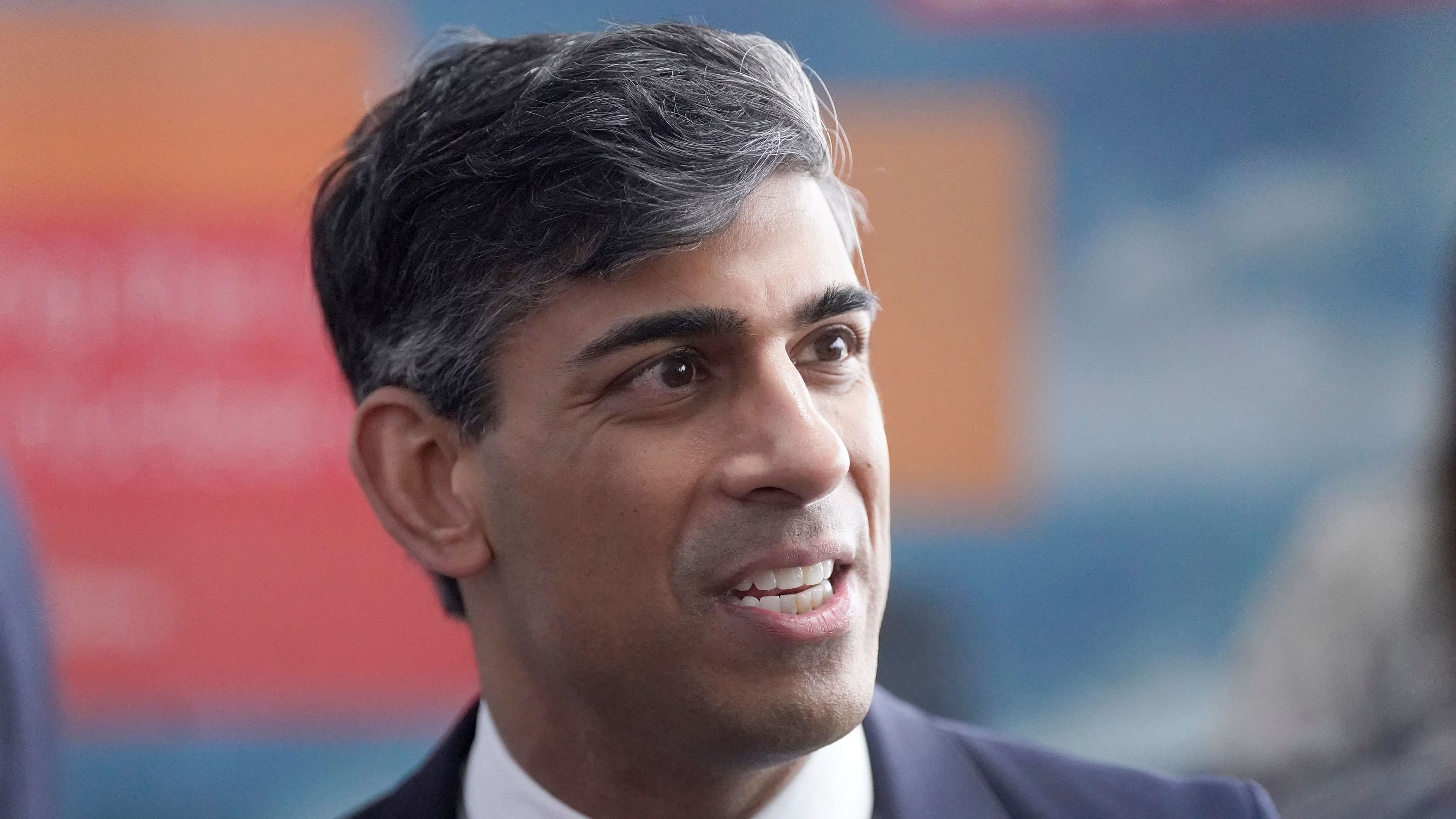
Prime Minister Rishi Sunak
Credit: Reuters File Photo
London: Prime Minister Rishi Sunak on Tuesday announced what he characterised as the biggest strengthening of Britain’s national defence in a generation to meet the challenge of an increasingly dangerous world and pledged to grow the country’s defence budget to 2.5 per cent of GDP by 2030 – amounting to an additional £75 billion in funding over the next six years.
Delivering a speech alongside NATO Secretary-General Jens Stoltenberg in Poland, Sunak said Europe was at a “turning point” and urged allies of the North Atlantic Treaty Organisation to step up against an "axis of autocratic states".
With Russia, Iran and China increasingly working together to undermine democracies, investment in defence was crucial to protect the world order.
“We will increase defence spending to a new baseline of 2.5 per cent of GDP by 2030 – a plan that delivers an additional £75 billion for defence by the end of the decade and secures our place as by far the largest defence power in Europe,” said Sunak.
“Today is a turning point for European security and a landmark moment in the defence of the United Kingdom. It is a generational investment in British security and British prosperity, which makes us safer at home and stronger abroad,” he said.
“In a world that is the most dangerous it has been since the end of the Cold War, we cannot be complacent. As our adversaries align, we must do more to defend our country, our interests, and our values,” he added.
The British Indian leader said Russia, Iran and China are investing heavily in their militaries and cyber capabilities and low-cost technology, as seen in the Shahed attack drones Tehran fired towards Israel last weekend.
This he described as a direct threat to the lives and livelihoods of people in the UK, as well as across Europe and the wider world.
Under his funding hike plan, the UK’s defence spending will increase immediately and then rise steadily to reach £87 billion at the end of the decade – hitting 2.5 per cent of GDP by 2030.
The British Prime Minister set out three areas of focus for the country’s bolstered defence budget: investing at least an additional £10 billion over the next decade on munitions production; modernising the armed forces by radically reforming defence procurement; and backing Ukraine’s defence in its ongoing conflict with Russia.
“Ukraine’s security is our security. As part of this plan, the government will commit an additional £500 million this year for the ammunition, air defence and drones Ukraine needs; the largest-ever single delivery of military equipment to Ukraine’s frontlines; and a cast-iron commitment to maintain existing levels of support to Ukraine for as long as it is needed,” a UK government statement said.
The UK said its move sets a new standard for other major European NATO economies to follow. If all NATO countries committed at least 2.5 per cent of their GDP to defence, the collective budget of the defence alliance would increase by more than GBP £billion.
UK Chancellor of the Exchequer Jeremy Hunt said: “It speaks to Britain’s global role that, with an improving economy, we can make this commitment to peace and security in Europe.
“It also sends the clearest possible message to [Russian President] Putin that as other NATO European countries match this commitment, which they will, he will never be able to outspend countries that believe in freedom and democracy.”
“The mounting threats we face mean we must invest in defence if we want to continue to defend our values, freedoms and prosperity. Today’s announcement marks the greatest strengthening of our defence since the Cold War, which will support jobs, boost growth, and strengthen our incredible Armed Forces as a modern fighting force,” added UK Defence Secretary Grant Shapps.
The increased investment will focus on key high-tech capabilities, including air defence missiles and anti-armour munitions, in addition to continued investment in UK-built 155mm artillery ammunition. A newly created Defence Innovation Agency will manage scaled-up investment in R and D, bringing together the fragmented defence innovation landscape into a single responsible organisation.
Additionally, Sunak also announced plans on Tuesday to reform the UK Ministry of Defence’s Head Office to operate as a fully functioning strategic headquarters – holding the front-line command accountable for delivery, driving better pan-defence prioritisation and ensuring value-for-money, supported by the National Security Council.